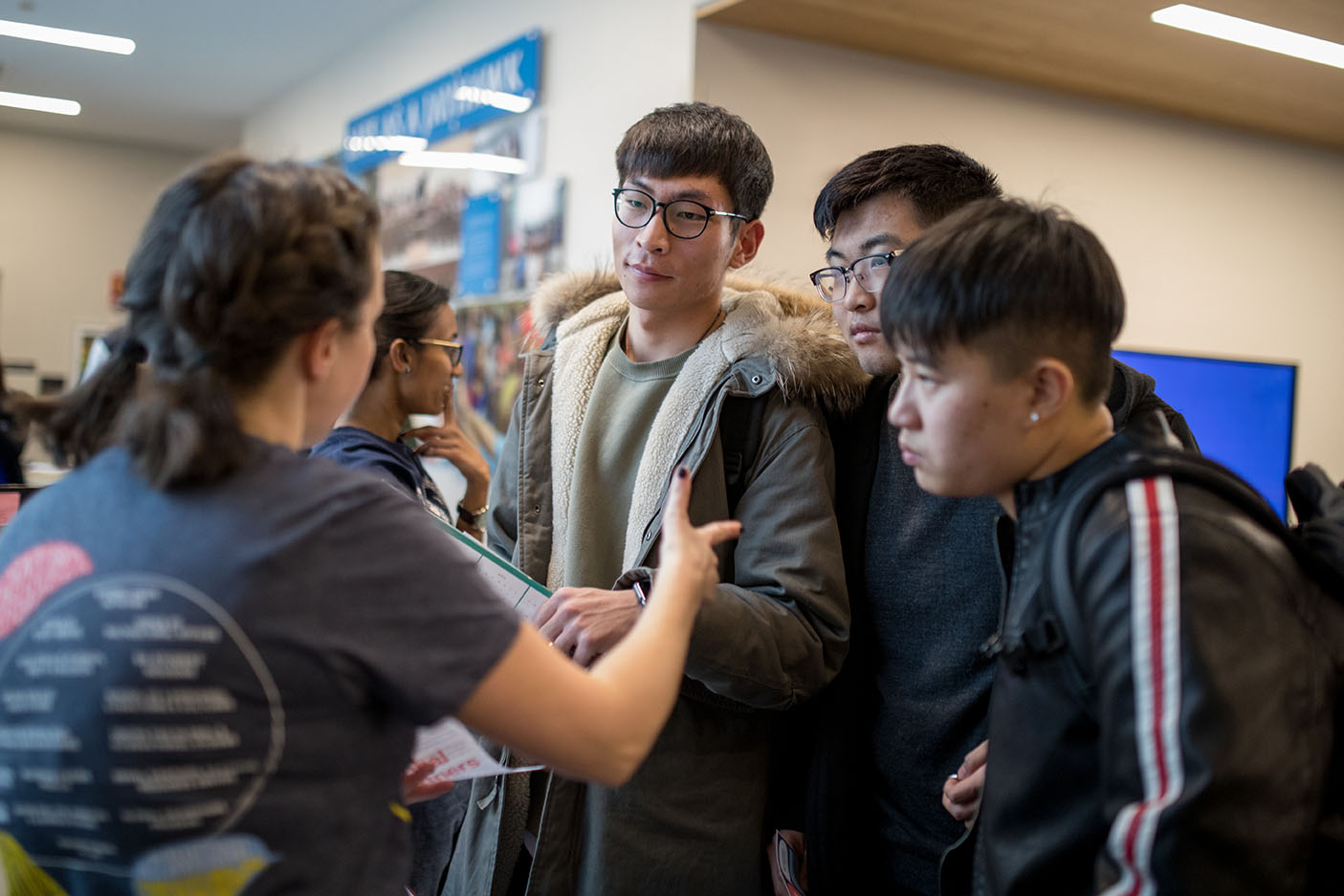
Learn about reciprocal and non-reciprocal exchange opportunities and how to implement them for undergraduate and graduate students, faculty, and researchers. This category also includes international internships, service-learning opportunities, and campus-based international short programs.
Student Exchanges
Exchange partnerships facilitate mobility of KU students and personnel, an international partner’s students and personnel, or both. With the exception of student reciprocal exchange agreements, all should be preceded by or signed simultaneously with an Agreement of Cooperation.
Reciprocal Exchanges
Students from KU attend a partner institution, and partner students attend KU.
[TODO: more here from SAGE explaining the special nature of these agreements and their unique procedural requirements +link]
Non-Reciprocal Exchanges
- Jayhawk Semester Program: Signing a Jayhawk Semester agreement allows both undergraduate and graduate students from partner schools to enroll as non-degree-seeking students at KU for a one- or two-semester study abroad experience. This is an appealing alternative to a reciprocal exchange agreement in the absence of sustainable interest from KU students in studying abroad at the partner institution, or when KU students’ study abroad needs are already met by another partner in the same region. [LINK to agreement sample PDF]
- Short Programs: Schools or departments can host groups of students from partner institutions for programs ranging from two weeks to two semesters in length. KU’s International Short Programs team provides design help, hosting assistance and logistical support for these impactful programs.
- Direct Enrollment: KU has formal agreements with a select set of overseas institutions which enable KU students to study as visiting students at the foreign university. These programs allow KU students to enroll in regular university classes at the host institution. Direct enrollment agreements provide opportunities to partner with an institution abroad when inbound student mobility may not be possible without a fiscal commitment on the part of KU for the receipt of incoming students. [link to list of programs?]
- International Internships and Service Learning: Similar to direct enrollment abroad, internship and service-learning experiences are another avenue for creating or strengthening a partnership with an institution abroad. [[text and links from SAGE]]
Faculty Exchanges
Faculty exchanges allow for visiting faculty to be exchanged between KU and a partner university. Typically, the hosting university provides logistical support such as visa sponsorship while the home university covers travel expenses. A direct exchange of faculty teaching appointments for a semester can deepen ties between partner institutions and provide opportunities to conduct research abroad or contribute to research collaborations.
Scholar/Researcher Exchanges
Visiting scholar (inbound) partnerships can be the first stage of much larger international engagements. They allow scholars from an international partner to conduct research with a collaborating department at KU. A unique variant of a visiting scholar collaboration, the Jayhawk Scholar program, allows an international graduate student to conduct research under the guidance of a KU faculty member while also taking or auditing courses. KU also provides logistical support for departments to host groups of faculty or scholars from partner institutions for academically focused short programs.
- Visiting Scholars
- Visiting Graduate Students
- Short Programs: Short program collaborations allow for a variety of inbound visits from international partners’ graduate students and/or faculty. These programs can range from two weeks to nine months in length and can include credit-or non-credit enrollment in the hosting department or, as needed, in discipline-specific English instruction through the Applied English Center. For more information, see the International Short Programs website.
